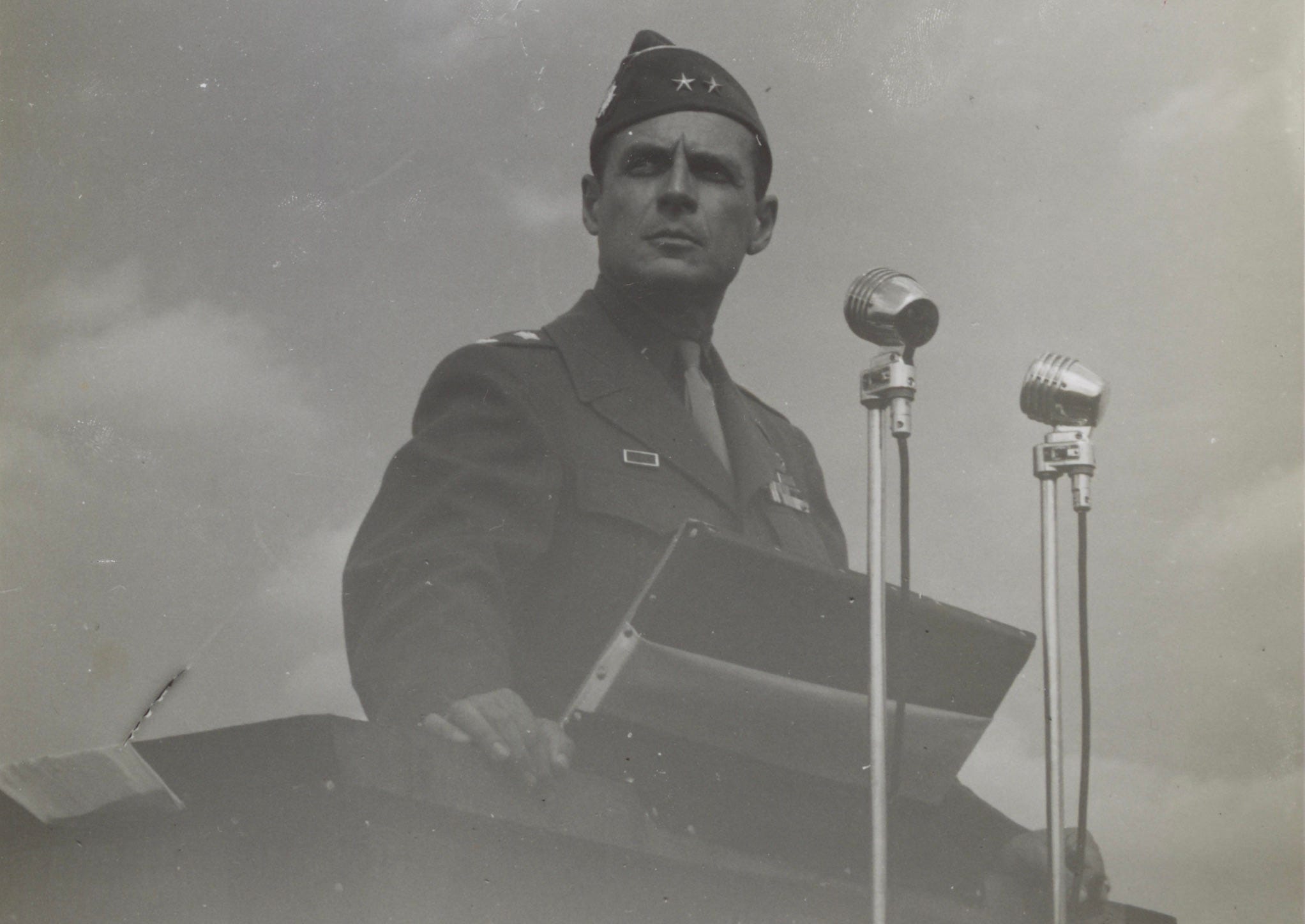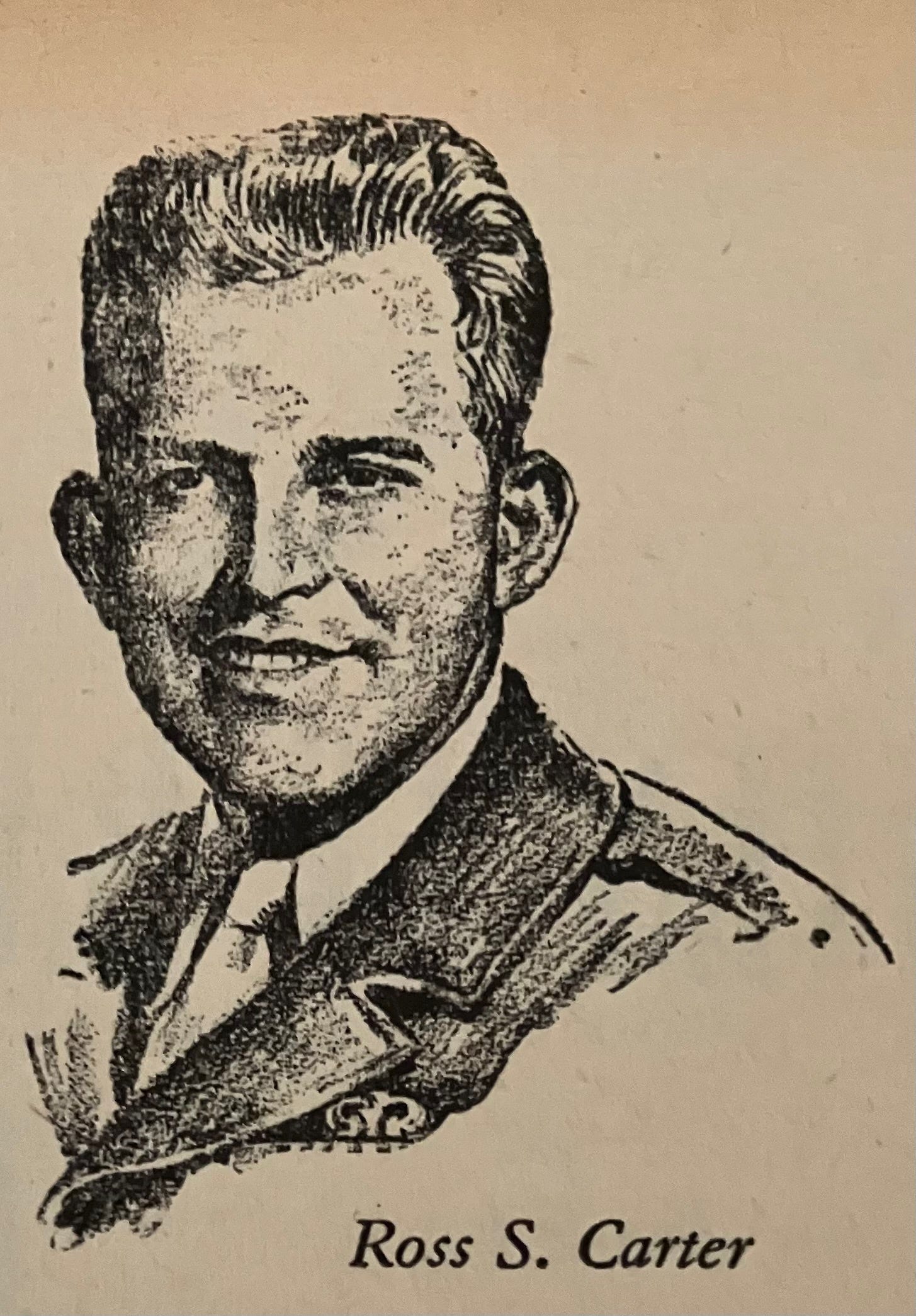Happy Thanksgiving! This week will be an abridged edition of Ridgway’s Notebook, featuring two short essays, and a book-release announcement. We hope you spend copious amounts of time with your family this holiday.
“We Won the War”
By Ross S. Carter1
For many months now I have been reading lifelike accounts of outfits that won the war singlehanded. In your magazine and in many others the lurid takes chill my blood. It is good to read of men cast in heroic mold, men with the bark on, but please, let’s try to get such authors to stop claiming that their outfit stopped the attack which would have overwhelmed the weakened defenders of this and that bloody beachhead. Let’s have no more accounts in yours and other magazines of companies that stopped the advance of eleven divisions. (That article wasn’t in your magazine.) Let’s be more realistic.
In division histories, each division, by implication, won the battle, played the decisive role, was the first to attack, the last to withdraw. It is good to have such espirit de corps, such pride, such gallantry: but it is not good to make such sweeping claims to glory, either directly or by implication.
It is not good to make such sweeping claims to glory, either directly or by implication.
My regiment, my division, of which I was an still am a member — all through the war and now in peacetime — has a record second to none, and I include the 1st and 3d Infantry Divisions, and the 2nd Armored Division. Nevertheless, it is not my contention that my regiment, my division, was the decisive factor in any of the many terrific scraps we picked with the Krautheads. We had the support of many units, rear echelon, and adjacent and without them we, though skilled and determined in battle, would have encountered grave difficulties in surviving.
Why brag that my regiment (504th Parachute Infantry Regiment) spent sixty-three hellish days on Anzio, gaining much glory, for without the expert support and cooperation of numerous artillery battalions, bastard tank battalions, nameless port engineers, and other units, we would have gained defeat instead of acquiring the name “Little Devils in Baggy Pants.”
S/SGT Ross S. Carter
Co. E, 505th Parachute Infantry
Seattle, Washington
It was remarkable how many books I saw on the wall dressed with the square and circle of the All-Americans. These were just the ones crowing. A sharper eye would have also picked out Beevor’s books and McManus’s September Hope. At this imposing wall of bound paper, which overloaded the senses, I realized why I invested so much in an esoteric topic.
Deep down, I didn’t want to write another 82nd book, nor another Market Garden book, least it be lost in the ocean before me. This vast ocean is filled with panoramic battle histories, decidedly linear the way westerners like, and decorated with the views of Joe. Joe #1 might appear once or twice to evoke conditions and convey feeling. Joe #2, a handful. There are soon so many Joe’s the reader devolves them to mean little more than names. Ross Carter’s treatment of one squad through the extent of the war gives Those Devils in Baggy Pants its endurance. He built relationship with living men.
Although I would never commit such total sacrilege as to compare Battle Surgeons to Carter’s magnus opus, the esoteric topic of medics gave me the freedom — paradoxically — to engage on a more intimate level with a fewer number of troopers. I had no longer had to fear omission, that magnetic draw that made me attempt to portray everything on a battle line. There were only so many parachuting doctors, after all. But more important than that, they had a story untold. After years of research on the regiment, I had known Francis Sheehan through a few mere lines in Brave Men. What a shame! He became one of the men I most respect. He’s proof looks could deceive.
Troopers like Francis Sheehan escaped the eye because their job was in the shadows. There — always — but never the main attraction like the rifleman. And it agreed with their humility without exception. Their presence as doctors at the decisive points helps the reader of Battle Surgeons appreciate all the myriad things, even in such a small regiment, that made a battle. You learn how the regiment worked. Following a few doctors, as they learn and evolve, reveals much. This is the pilot house light that makes Battle Surgeons discernible on the high seas.
Battle Surgeons will be available on Amazon on December 1, 2023.
This essay first appeared in Infantry Journal, Volume 59, Issue 6, December 1946, and is reproduced therefrom. At this time, Carter would have been on a 90-day medical leave from T/F Frigid following the removal of the mole on his back in Seattle. Two months later, he would be admitted to Walter Read, and two months later he would pass away. This could be the last public piece he wrote.





